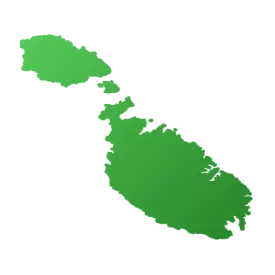Malta


Discover Malta
Malta, a small Mediterranean archipelago, boasts a history that spans thousands of years, making it one of the world's oldest continuously inhabited places.
The earliest known inhabitants of Malta were the megalithic temple builders, who constructed some of the world's oldest free-standing stone structures around 3600 BCE. These temples, such as Ħaġar Qim and Mnajdra, are UNESCO World Heritage Sites and provide insight into the island's prehistoric past.
In the 8th century BCE, the Phoenicians established colonies on Malta, contributing to the island's trading culture. Subsequently, Malta was ruled by various powers, including the Carthaginians, Romans, Byzantines, and Arabs.
One of the most significant chapters in Malta's history occurred in the 16th century when the Knights of St. John, also known as the Knights Hospitaller, arrived. They fortified the island and withstood a famous siege by the Ottoman Empire in 1565. The Grand Harbor of Malta played a crucial role during the naval battles of the Mediterranean.
In 1798, Napoleon Bonaparte seized Malta, but British forces ousted the French in 1800. Malta then became a British colony until it was granted self-government in 1921 and eventually independence in 1964.
Independence was a pivotal moment in Malta's modern history, followed by the establishment of a parliamentary republic in 1974. The country has since developed a thriving economy, with a focus on tourism, financial services, and manufacturing.
Malta joined the European Union in 2004 and adopted the Euro as its currency in 2008, further integrating itself into the European community. The country's rich history and cultural heritage continue to be celebrated through its many festivals, museums, and historical sites.
Source ChatGPT
Experience Points


XP EARNED OUT OF 0
Points Breakdown
| Sticker Collected | 0 XP |
| Card Collected | 0 XP |
| Bonuses | 0 XP |
| Total | 0 XP |
Your travel history

First Visit
---
Last Visit
---
You've logged 0 visits.

